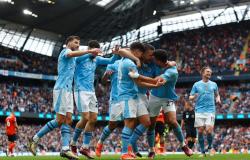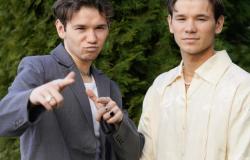– The numbers don’t lie. We should be careful about saying that they are in the national team because of us. It’s not like that, but we have contributed, and the players themselves are clear about that, says Terje Lübeck in the Norwegian Football Academy.
The Norwegian Football Association has long been critical of private companies that charge money to develop players.
There are now many indications that this market is growing. Services are sold for millions.
Norwegian Football Academy
– More paid offers have also emerged in the clubs, and more private academies have appeared. The number has varied quite a bit for us, but last autumn and winter there was a complete drop in registrations, says Lübeck.
Personal training
Fotballprogresjon Norge, another company that specializes in private training sessions, reports 5.2 million in turnover last year. That is almost a doubling in two years.
– There is increasing acceptance of personal training and private academies in football, says manager Danny Sannes.
Football progression primarily offers personal training for children and young people. Most of it takes place in small groups. It then costs NOK 350 per player per session.
A single PTPersonal training.session costs NOK 1,095.

Football progression Norway
A count, only for these two actors in Eastern Norway, shows eight players on the A national team, 28 on the U national team and 48 on age-specific national teams. A total of 84.
– Starting football training in early childhood, as Oscar Bobb, Kristian Arnstad and Christos Zafeiris and others did with us, gives a clear advantage, says Sannes.
– We have contributed to the development of over 60 national team players. About 70 percent of them have been with us for a longer and more significant period.
“Mini WC” for children
In the article series “The divided football city”, VG has gone into depth on the differences in Football-Oslo.
Is it the parents’ wallet that determines who can become good at football in Norway?
Expensive academies, both private and the clubs’ own, are pointed to as an important reason why players from certain areas seem to hijack the national team places.
– Football should be for everyone, so it’s a shame that it has become a class divide in childhood. But it will be a political discussion. We depend on covering our costs, says Terje Lübeck.

NFFThe Norwegian Football Association and several have been critical of private academies that do not comply with rules that apply to children’s sports. For example, children can only participate in tournaments outside the Nordics from the year they turn 13.
Private individuals can take the liberty to break these rules with open eyes.
The Norwegian Football Academy sends players to the Mundialito, a kind of “mini World Cup” for eight-to-twelve-year-olds in Spain.

– It is very good learning to meet teams from all over the world – some of those at the top of the world with different mindsets and ways of playing – and to do it without the security you usually have. This is often what players highlight as the highlight, says Lübeck.
– Crowded on the tracks
As a consequence of this, the private academies have been unwanted on public football pitches.
– It is my job to ensure that the sports teams create activity for as many children and young people as possible. And the fields are packed, says general secretary Magne Brekke of the Oslo Sports Circle.
– There is nothing in the way of private people renting time, if it is available, but it must be done on commercial terms with Oslo municipality.

Oslo Sports Circle
– But are you more skeptical of private academies than others who want to rent?
– We are skeptical of an excessive professionalization of children’s and youth sports. Whether it’s in sports or outside. Excessive focus on quality makes it unreasonably expensive. It is a problem for the ambition that everyone should be able to participate.
Brekke emphasizes that sport does not have a monopoly on playing football.
And these academies have been popular for a number of today’s national team players – such as Arsenal’s Frida Maanum.

Kristoffer Vassbakk Ajer and Hugo Vetlesen have also spoken warmly of the academies, which promote themselves with “first-class coaching and follow-up”.
– The nature of football has changed; higher technical and tactical skill is required due to the increased tempo of the game, Sannes believes.
A few years ago, Terje Lübeck was reprimanded by the NFF Oslo, because he privately broke the children’s sports regulations and at the same time was a member of a club associated with the NFF.
But the appeals committee in the NFF acquitted him.
Lübeck says that he finds it strange that there are so many opposing forces that want to limit physical activity.
tip us

Journalist
Journalist at VG Sporten. Mostly works with football, but also other sports. Feel free to let me know about news or issues we should dig into: [email protected]

Journalist
Covers all sports, but primarily cross-country skiing and the Premier League in the last year. Educated at Kristiania University College.








